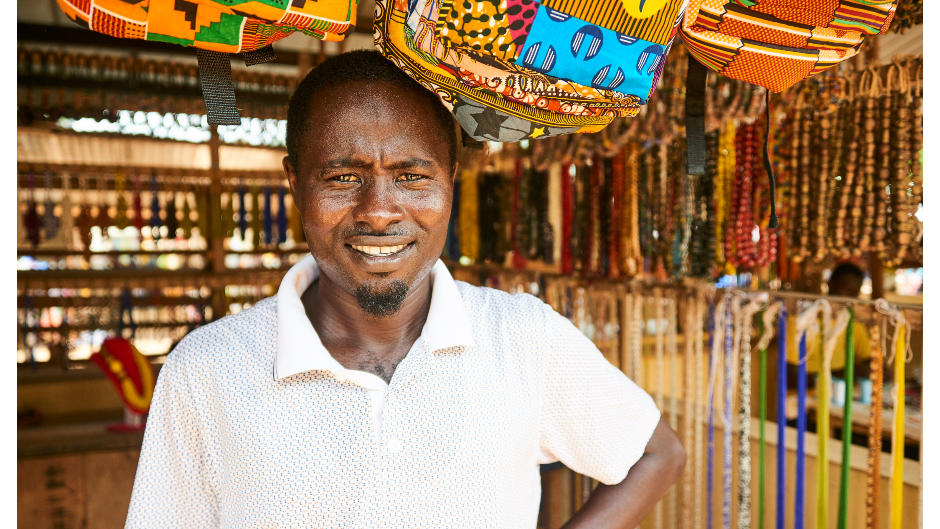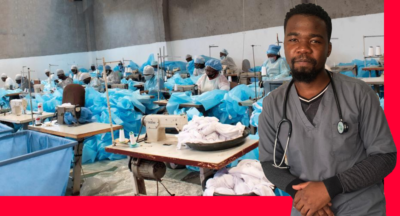Targeting the African market, both those in Africa and the diaspora, comes with challenges. First among these is the need to understand the cultural quirks of the community you’re addressing.
Kay Akinwunmi is the co-founder of the African startup – Zazuu – a money transfer marketplace, giving people the ability to see and compare the best rates and fees when sending money to Africa. Kay discusses the practical and cultural things to consider when marketing a start-up geared for the African market.
“Zazuu came into being because sending money across borders is unbelievably expensive.
Remittance payments made to friends and loved ones can cost the earth, and there is a lack of openness about how much payments cost that frustrates many people sending money abroad.
When we launched Zazuu we wanted to create a platform built on openness – one that was fully transparent, driven by a trust engine.
We wanted to give people sending money to Africa all the information they needed to make the right remittance decision for them.
Though we sometimes hear talk of ‘Africa‘ as if it is a monolith, we are really talking about a vast number of distinct peoples, not just across the continent, but within each country.
And no culture is static; all cultures evolve. This means understanding your context is a task that never truly ends.
Context matters so much in Africa particularly because Africans want to see themselves in the companies they buy from. They want brands to reflect them.
This means that finding and working with local partners, people on the ground, in your target community – is something you need to do from the very beginning.
Ideally this should happen as soon as the company is registered locally, which is what we did.
These partners, and they might be friends or family members or part of your extended network, will be able to provide you with invaluable input while you hone the design of your brand, consider your top-line messaging, and start to create a comprehensive marketing strategy.
They will continue to be important as your company grows. Local partners will show their value when you start communicating actively with your key demographic.
In Africa, authentic marketing is essential.
Bound up with this idea of knowing the people you’re serving is the need to set a fair price for your product or service.

Anyone starting a business for the African market must bear this in mind. This is in Zazuu’s DNA, since we exist, among other things, to save people money.
But whatever you’re selling, know that Africans will not want to buy from you if they can get the same product for a lower price.
If there is an African culture for buying expensive things because they are expensive, as there is in some parts of the world, it is weakly developed.
Expect to be found out if you are charging too much, and make sure you start as you mean to go on, or it will be harder to build trust moving forward.
We’re now serving people sending money to Nigeria, Ghana and other locations. It has never been more important for us to do this, given the way the pandemic has affected remittance flow to sub-Saharan Africa in particular.

The World Bank said remittances to Africa fell 12.5 percent last year. The decline in flows to Sub-Saharan Africa was almost entirely due to a 28 percent decline in remittance flows to Nigeria.
Sub-Saharan migrant workers, especially those in high-income OECD countries, have lost jobs or seen their incomes fall, said the Brookings Institution.
But we can be hopeful of a rebound, in part because of the rise of climbing trust in fintechs and other tech-enabled financial organisations.
As for us, we’ve raised funds and we’re growing. But a final word of caution to anyone who is founding a startup aimed at the African market.
If there is a felt need for your product and service, you have contextualised your branding and messaging within your target community, you have an on-the-ground presence, fair pricing, and you look and sound like the people you serve, then you’re in the best position to grow.
And with that comes the temptation to go beyond the borders of that main demographic you are addressing.
But one of the things we have learned is that you have to walk before you can run.
The African market operates in a fundamentally different way to the way it does in much of the West, where whatever you’re selling can usually be rolled out without delay to any local territory.
Venture capitalists in the tech space are notorious for encouraging ‘hyper-growth’ strategies that aim to push out any competition, real or potential.
But when you’re aiming at a community in Africa, the need to appreciate the local setting means growing too quickly will weaken your brand and the intimacy with your audience that you have worked so hard to cultivate may be lost.
I don’t want to give off the impression that I know everything there is to know about founding a startup aimed at the African market.
The whole Zazuu team, despite the successes we’ve had so far in our journey, are still learning. And that’s why we try to stay humble, pass on what we’ve learned onto others, and keep an open mind.
And that open-mindedness and humility is something useful to all entrepreneurs, whatever market you’re aiming at, and however far along you are in your journey.”
Images Copyright – Shutterstock.com (Danilo Marocchi) / Unsplash / Kay Akinwunmi
More Stories
‘We believe the day is near when all pharmaceutical needs of Africa shall be produced in Africa’
Manufacturing in the UK vs China: The trials of getting a new product to market as a young startup
Why I’m using my social enterprise profit to fight for social justice in sub-Saharan Africa
Ideas: British young inventors ‘working for a better world’ from across the UK












